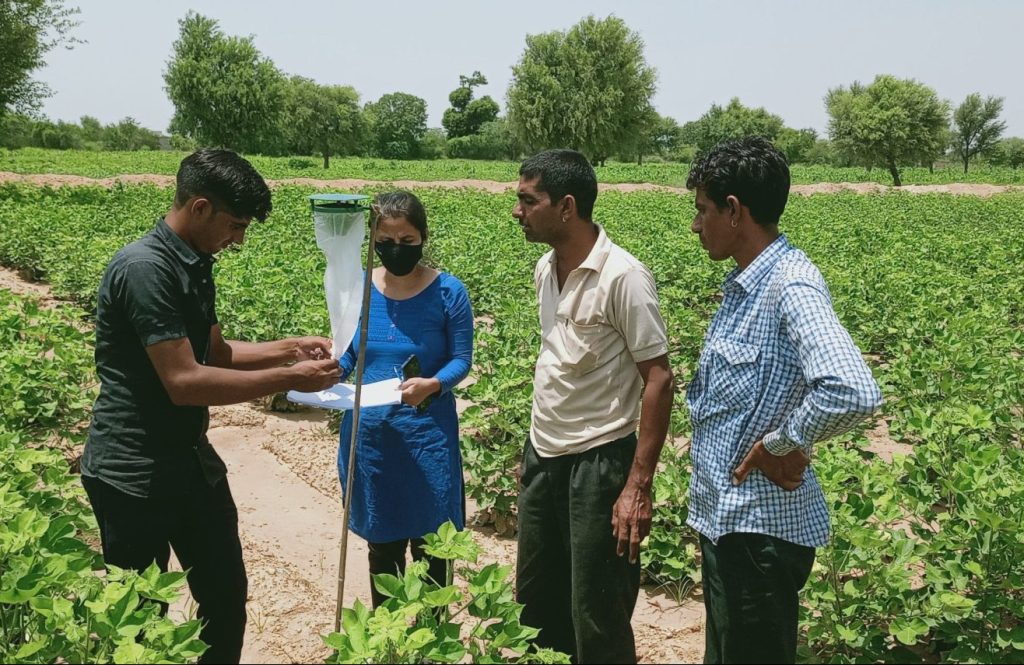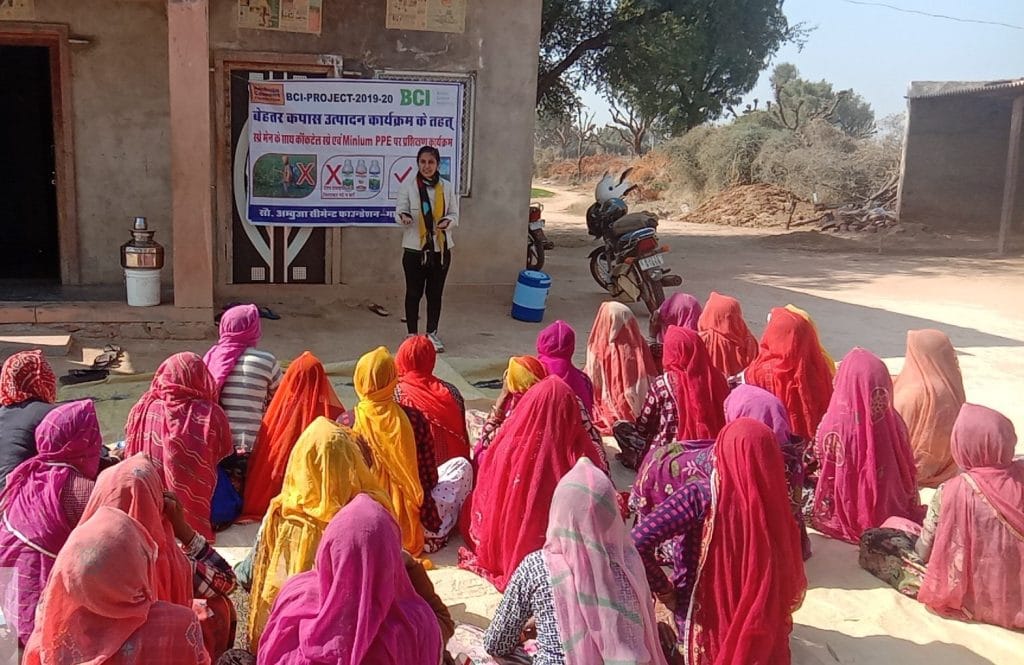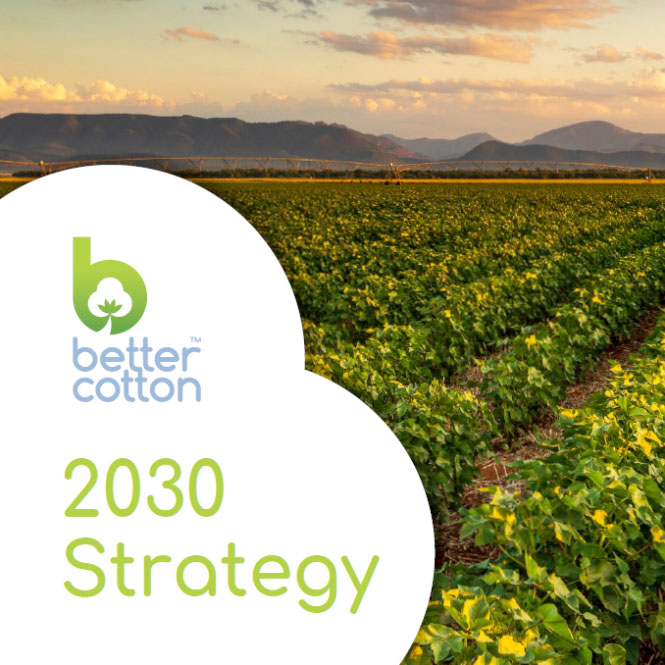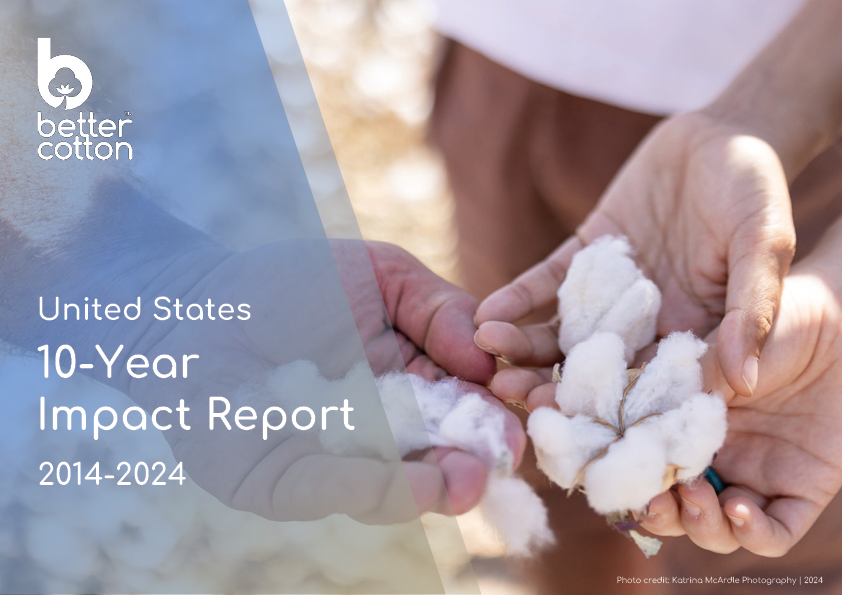- Who we are
- What we do
In just over 10 years we have become the world’s largest cotton sustainability programme. Our mission: to help cotton communities survive and thrive, while protecting and restoring the environment.
- Where we grow
Better Cotton is grown in 22 countries around the world and accounts for 22% of global cotton production. In the 2022-23 cotton season, 2.13 million licensed Better Cotton Farmers grew 5.47 million tonnes of Better Cotton.
- Our impact
- Membership
Today Better Cotton has more than 2,700 members, reflecting the breadth and diversity of the industry. Members of a global community that understands the mutual benefits of sustainable cotton farming. The moment you join, you become part of this too.
- Associate Membership
- Civil Society Membership
- Producer Organisation Membership
- Retailer and Brand Membership
- Supplier and Manufacturer Membership
- Find Members
- Member Monitoring
- Better Cotton Platform
- myBetterCotton
- Resources – Better Cotton Conference 2022
- Complaints
- Whistleblowing
- Safeguarding
- Get Involved in the Better Cotton Programme
- Thank you for contacting us
- Better Cotton’s Data Privacy Policy
- Log in
- Members’ Area
- Request for Proposals
- Better Cotton Cookie Policy
- Web Reference
- Measuring Cotton Consumption
- How to Implement the Chain of Custody Standard
- Resources – Better Cotton Conference 2023
- Certification Bodies Old
- Latest
- Sourcing
- Latest
The founding premise of Better Cotton is that a healthy sustainable future for cotton and the people that farm it is in the interests of everyone connected with it.
Let us help you find what you’re looking for
Results for {phrase} ({results_count} of {results_count_total})Displaying {results_count} results of {results_count_total}
Anjali Thakur, Producer Unit Manager, Ambuja Cement Foundation, India
Anjali grew up in an agricultural family and went on to achieve an undergraduate degree in Horticulture and an MBA in Agribusiness Management. She has always had a desire to work with and support farming communities and families, and this inspired her to pursue a career in this sector.
In her role as Producer Unit Manager at Ambuja Cement Foundation, Anjali works to build the capacity of the field-level staff who deliver trainings to Better Cotton Farmers. She works with them to develop demonstration plots where they can showcase best practice farming techniques, and she conducts research and baseline surveys to assess the effectiveness of the practices adopted by farmers.
What key challenges do you see in cotton production in India?
The use of pesticides is a challenge – we know that the excessive use of pesticides is harmful for the environment, to soil and water, and indirectly harmful to human health. I want to keep raising awareness among farming communities to use less and less pesticides and to find alternative natural methods of pest control. Achieving this motivates me in my role.
Can you tell us about any positive changes that you have seen on the ground?
I work with cotton communities on the ground, and I have seen lots of positive changes over the years. It’s easy to adopt new practices in the field, but positive changes in terms of long-term behavioural change is very important. For example, previously, farmers were not using personal protective equipment when applying pesticides, but now they are. And if I look 8 to 10 years back there was child labour, but in our project areas that has now been eliminated. The way the farmers want to learn and the way they are improving themselves inspires me.


Can you share some examples of the more sustainable practices that farmers are implementing?
There are lots of practices that contribute to sustainable agriculture. For example, to support better water conservation and harvesting, we work with farmers to install farm ponds and drip irrigation in their fields – we know that the efficiency of drip irrigation is 85% – 90% so this is contributing to reduced water usage and more sustainable practices overall. We also conduct soil and biodiversity mapping and then work with farmers to restore these resources on their farms. More broadly, I identify government schemes that may help to support farmers in implementing new practices and I look for opportunities to partner with universities and institutions to support relevant research studies into sustainable farming practices.
Tell us more about how you are supporting women in cotton?
When I started out in my role, I saw that many women were involved in farm labour, but they were not involved in any decision making. I wanted to share my knowledge with them to empower them. I started to deliver training sessions and raise awareness about the Better Cotton programme and other agronomical practices among female farmers and farm workers. The way they are learning new things inspires me. Before, they had limited knowledge of more sustainable practices, but now they know about pesticide labelling, how to encourage beneficial insects, and the benefits of wearing personal protective equipment, such as masks and gloves.
Are there any thoughts you would like to leave us with?
I live and work in a male dominated society – I see in the villages that many fathers do not let their daughters go and study higher education. My role is important in delivering training to women, as they then inspire and encourage one another, which opens up new opportunities for them. I see this driving change for future generations.


